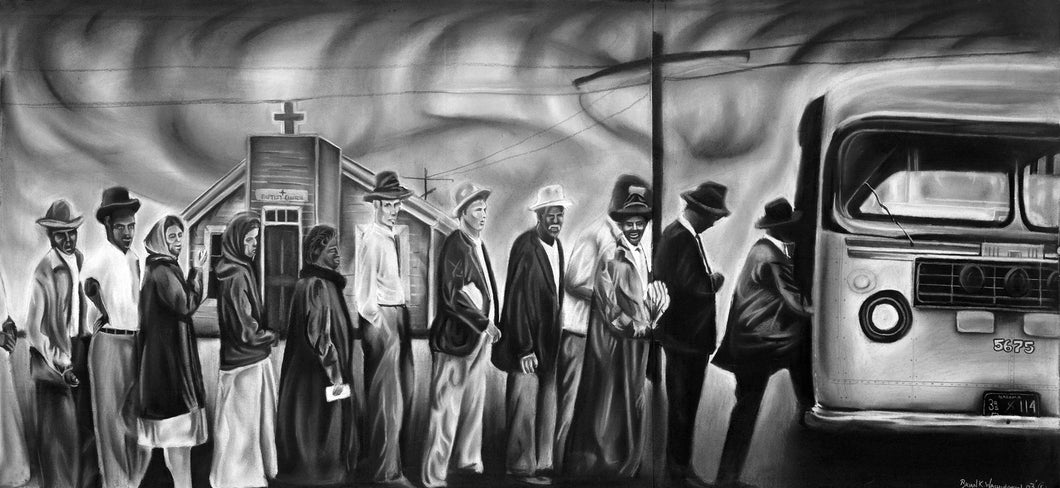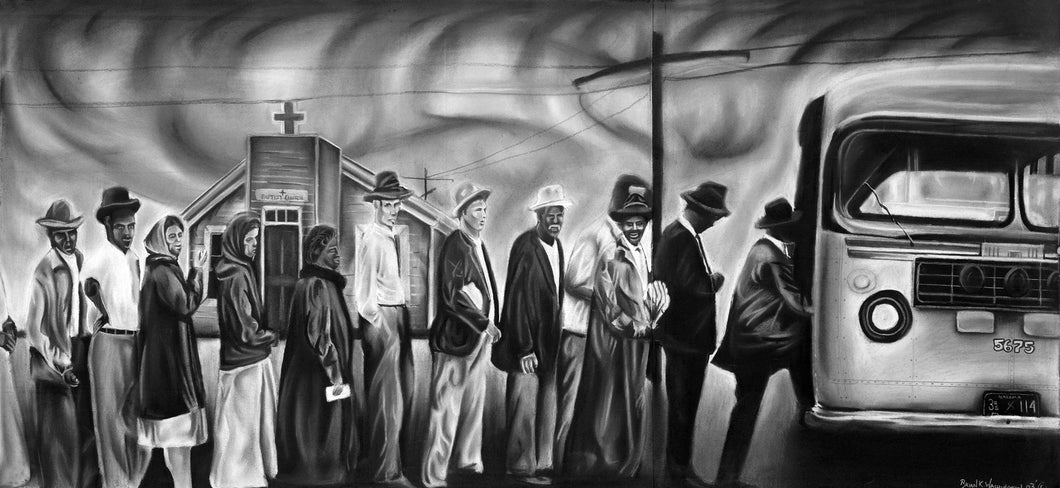Limited Edition Giclee Prints
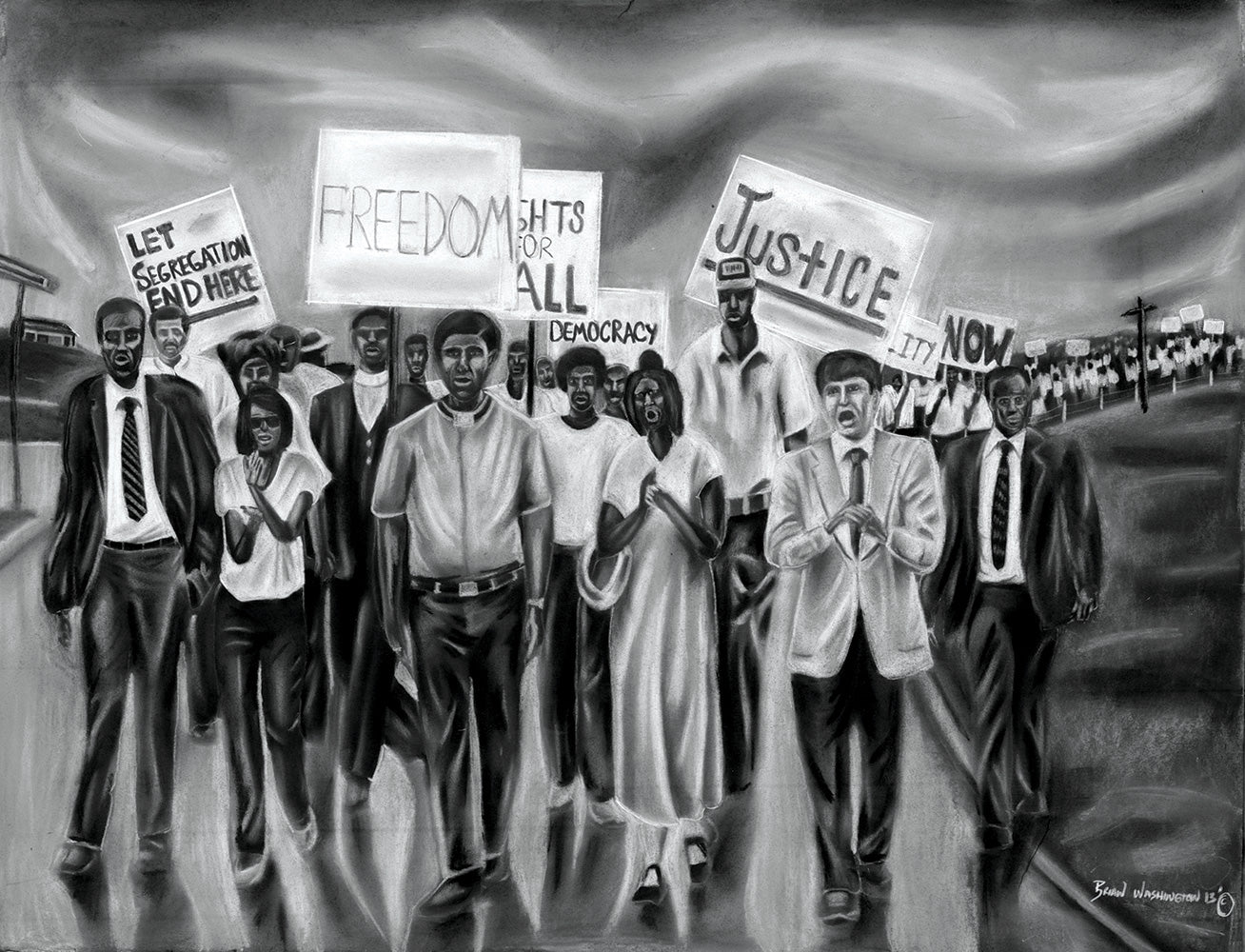
Let Nobody Turn Us Around
Regular price
$620.00
Sale
- Edition size — 350
- Giclee printed on 100% rag watercolor paper.
- Image: 22"x 30"
In “Let Nobody Turn Us Around,” Washington depicts a traditional Civil Rights era protest scene, featuring a crowd of demonstrators taking to the streets to fight segregation and Jim Crow. As a result of these protesters’ non-violent tactics (which were commonly met with brutal violence from southern authorities), many of the segregationist policies of the south were eventually overturned.
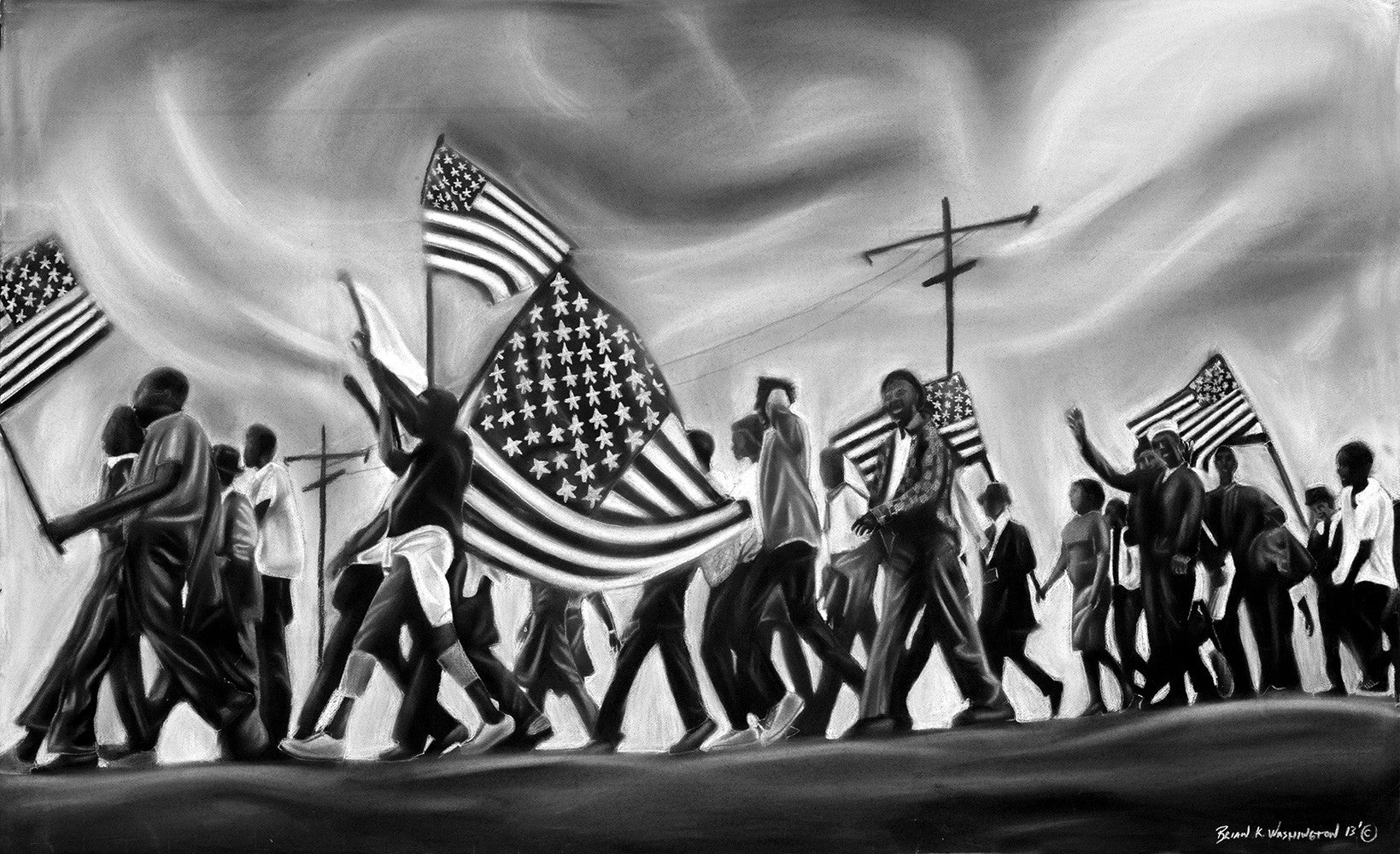
We Walk The Difficult Road
The Artwork of Brian Washington
Regular price
$600.00
Sale
- Edition size — 350
- Giclee printed on 100% rag watercolor paper.
- Image: 22" x 35"
- Trim: 26" x 40"
“We Walk The Difficult Road” was inspired by the Selma-to-Montgomery March for voting rights. The Selma-to-Montgomery March for voting rights ended three weeks -- and three separate events -- that represented the political and emotional peak of the modern civil rights movement.
In “We Walk The Difficult Road,” Washington depicts a racially mixed group of activists, some carrying American flags, marching in support of voter rights in the rural south. Ominous and sweeping clouds foreshadow and completely obscure armed National Guardsmen standing road-side. Indeed, for legions of brave activists participating in the Selma-to-Montgomery March, the road to freedom was difficult – but the ultimate success in changing the racially divisive social landscape of the South was monumental.
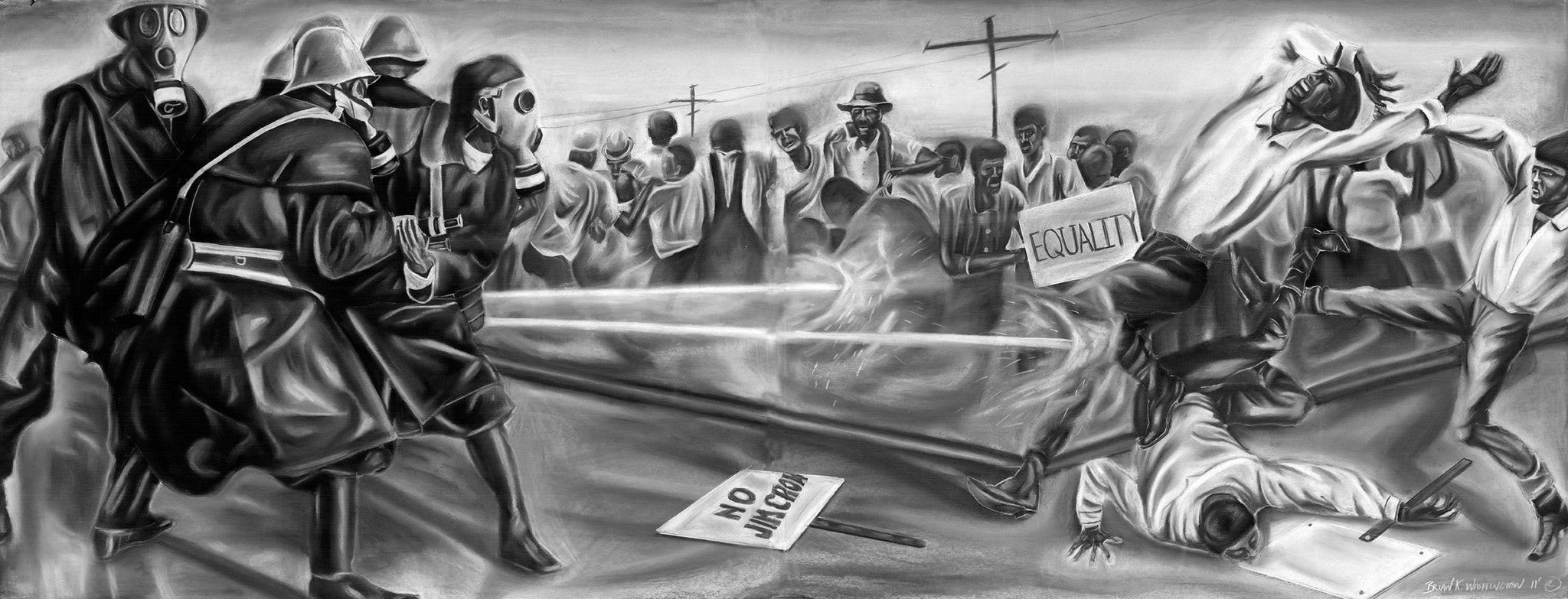
Freedom has Never Been Free
Regular price
$600.00
Sale
- Edition size — 350
- Giclee printed on 100% rag watercolor paper.
- Image: 15"x40"
- Trim: 19" x 44"
In “Freedom Has Never Been Free,” Washington depicts the brutality of the Civil Rights Movement at its climax. Fire hoses were used on protesters -- whether they were men or women, peaceful or not – as a means to disrupt their dreams of racial equality. When that was not enough, firefighters turned even more powerful hoses on protesters, hoses that shot streams of water strong enough to break bones and roll the protesters down the street. Sometimes protesters suffered from more than just fire hoses; they were sometimes beaten or even killed.
Washington implicates all of these details into the composition of “Freedom Has Never Been Free.” To the right, protesters stumble and fall as they are drenched with the violent waters shot at them by local firemen. The firemen, the villains of this work, are adorned with masks that obscure their faces and substitute their humanity for a ghastly, otherworldly existence. The protesters in the center of the image have bound their arms together, in an attempt to withstand the pulverizing force of the fire hoses -- hoping that their collective strength can withstand the power of the firemen’s tools of oppression.
To the center right is a lone protester holding a sign that reads “EQUALITY,” reminding the viewer that this horrific scene was born out of the desire for African Americans to have the same rights as white Americans.
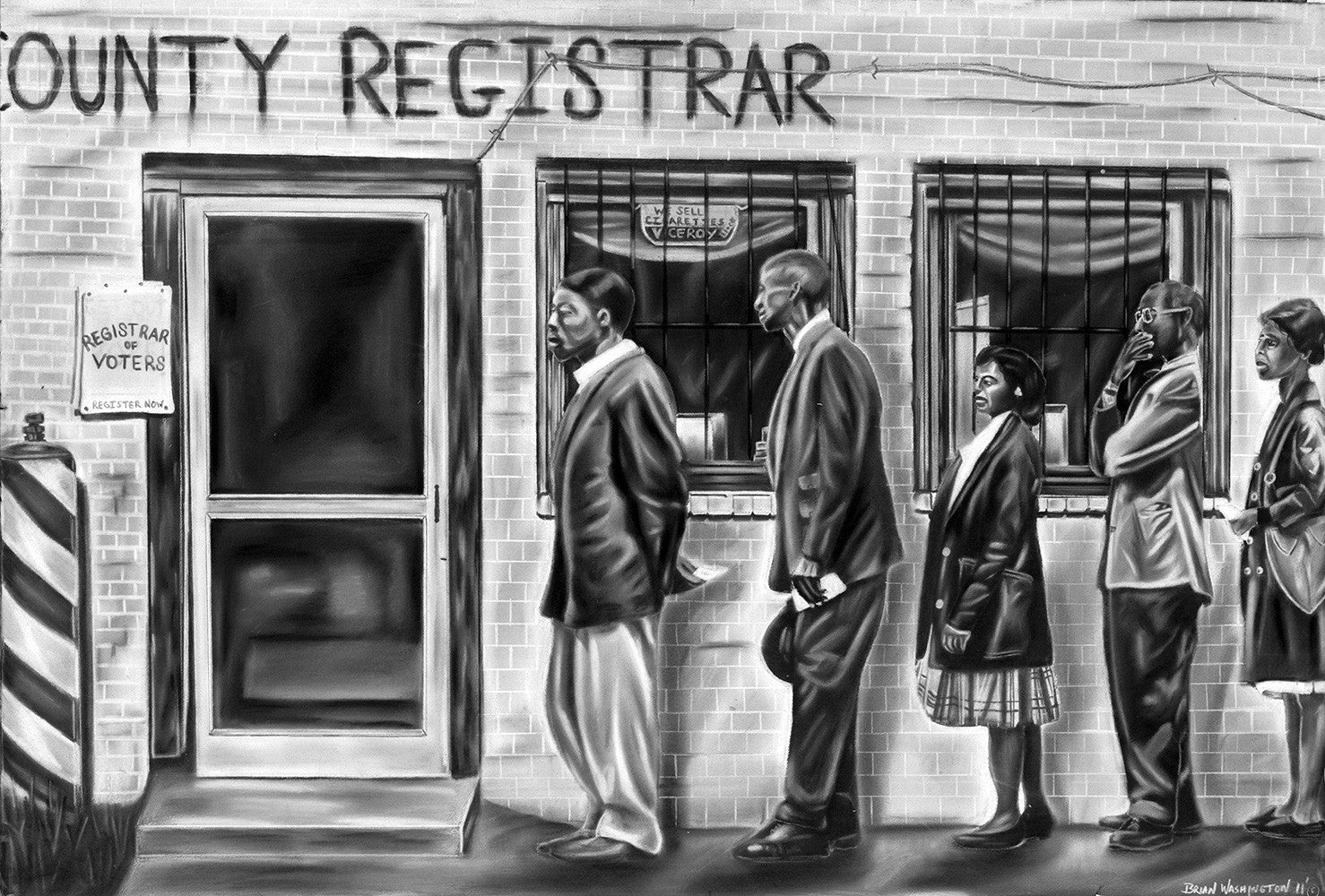
A Study of Impatient Patience
Regular price
$620.00
Sale
- Edition size — 350
- Giclee printed on 100% rag watercolor paper.
- Image: 24"x 36"
- Trim: 28" x 40"
In “A Study of Impatient Patience,” Washington depicts a group of African Americans assembled for voter registration at a local county registrar that could have been anywhere in the South during the segregation years. They have arrived early, prior to the registrar’s opening. Blatant and unobstructed attempts at violence often accompanied such registration campaigns. These prospective voters proudly stand resolutely one after the other, stoically bracing themselves for whatever obstacle may arise as they attempt to exercise their constitutional right to vote.
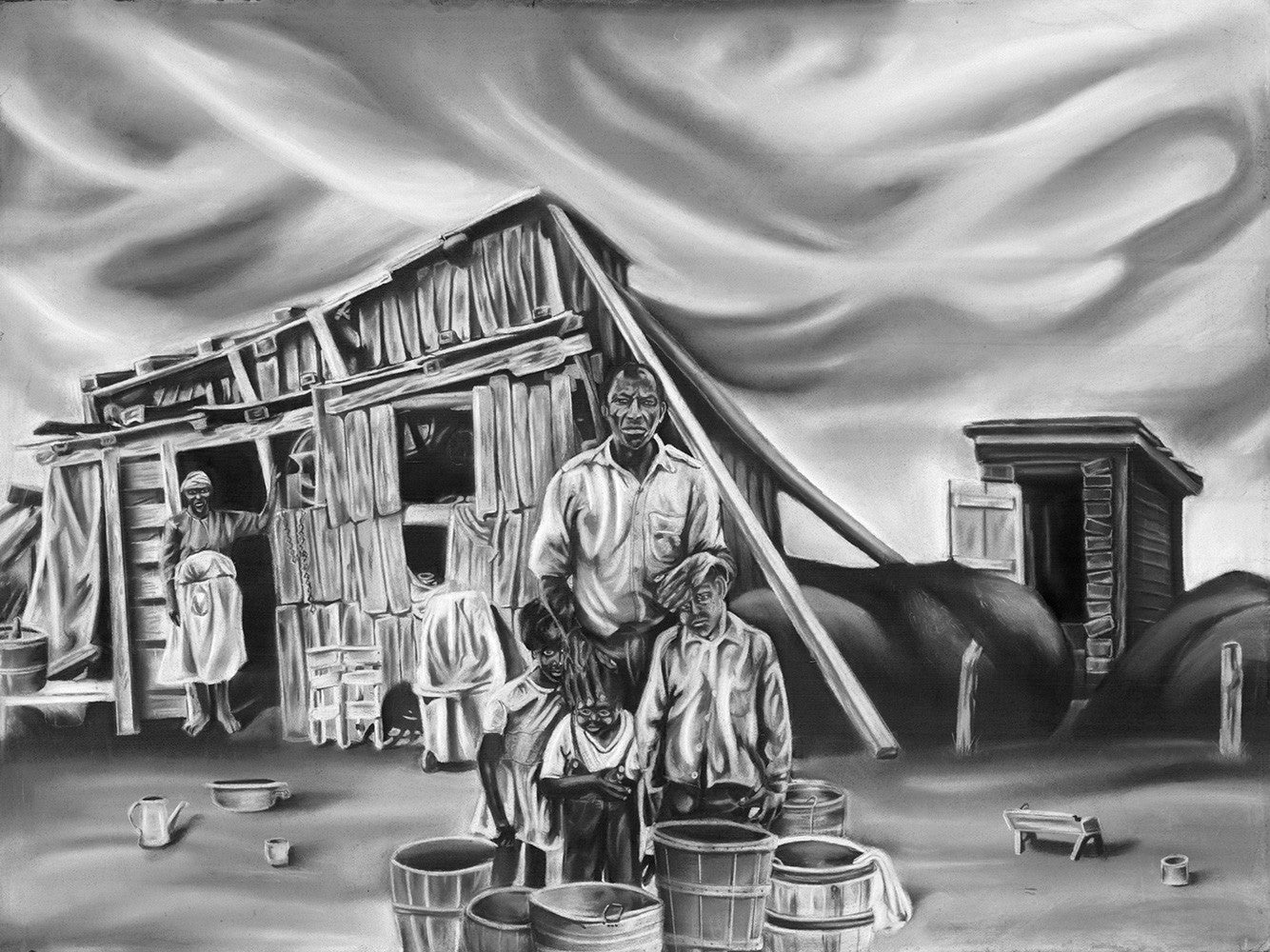
The Were Very Poor But Loved
Regular price
$600.00
Sale
- Edition size — 350
- Giclee printed on 100% rag watercolor paper.
- Image: 23" x 31"
- Trim: 27" x 35"
In “They Were Very Poor, But Loved,” Washington intricately depicts the plight of the sharecropper family. Sweeping clouds are invoked by Washington to indicate turbulent times. The hard, backbreaking work of the sharecropper led to stooped, physically destroyed, and mentally blighted black people who could seldom envision escape for themselves or their children. Their lives were an endless round of poor diet, fickle weather, and the unbeatable figures at the company store. However, the family bond was rarely broken by such dire circumstances.
“They Were Very Poor, But Loved,” depicts a father figure with exaggerated hands that are symbolically big enough to provide for and protect his family. The young men stand out in the front, learning from their father. The daughter, her father’s jewel, stands off to the side and in a guarded posture -- a position emphasizing a father’s love for her that is undeniable.
The mother gazes upon the family protectively from the house, dressed in her apron. The house, held together with sweat, love and a few boards -- is home to this family and no doubt dreams of a better life for their kids are buried in a bible inside.
The outhouse, and the buckets and barrels, rendered in high detail, are an attempt by the artist to bring the viewer into this time in American history, complete with the emotions and pain that were inescapable.
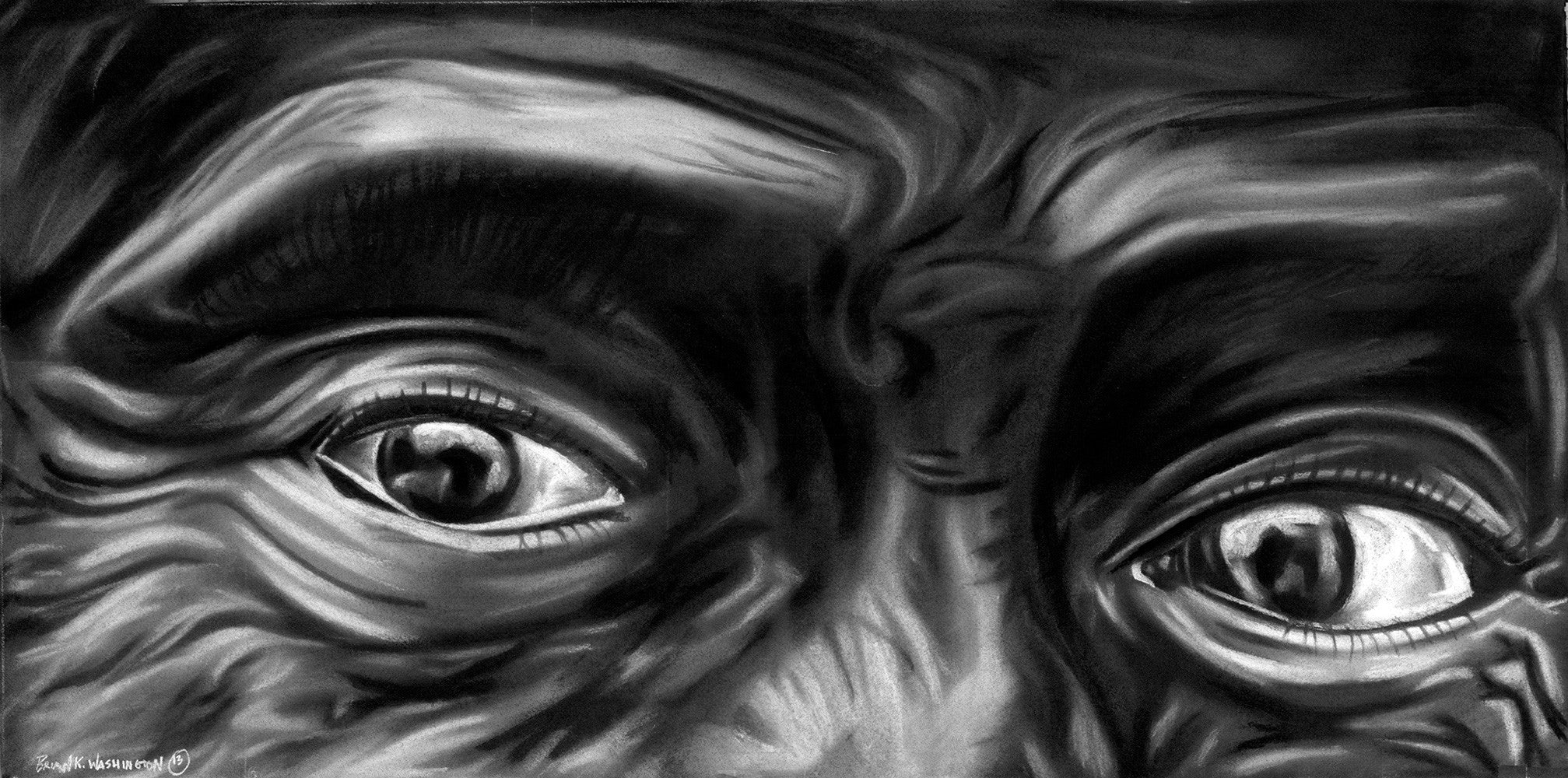
What These Weathered Eyes Have
Regular price
$600.00
Sale
- Edition size — 350
- Giclee printed on 100% rag watercolor paper.
- Image: 19" x 38"
- Trim: 23" x 42"
In “What These Weathered Eyes Have Seen,” Washington depicts the troubled eyes of an otherwise unidentified elderly African American man. The man’s aged and weathered eyes possess a hint of sadness, yet speak to the trying experiences of a people and the need for persistence in times of adversity.

